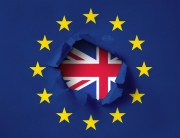Around 2.3 million nationals of other EU countries are in work in the UK as of earlier this year. That’s about 7% of people in work—the highest on record – and there’s no doubt they make a significant contribution to the economy. However, as Article 50 is triggered, business owners may be forgiven for feeling a little confused as to how it affects their recruitment processes.
Negotiations with the EU are set to take two years at least, and businesses can ill afford to adopt a wait-and-see approach for fear of missing out of growth opportunities. So, how does the Brexit vote affect the recruitment and employment of EU nationals.
Here’s what we know:
Nothing’s changed (so far)
Despite what the national press would have you believe, the Referendum result hasn’t changed anything when it comes to hiring EU nationals. Britain will be a member of the EU until the negotiations are completed and any deal is done. It’s very much business as usual for the time being and it remains against the law to treat EU workers any differently to their UK counterparts. Indeed, they remain able to make a discrimination case under the banner of the Equality Act 2010.
Is it any more difficult to recruit workers who are EU nationals?
Not at all. All workers from the EU – and Britain – must go through the same identity and right-to-work checks.
Another thing that hasn’t changed is the fact that a business owners can be sent to jail for up to five years and receive a hefty fine if it can be proven that they knew – or should have known – that anyone they employ doesn’t have the right to work in the UK. Frontline’s rigorous seven-point recruitment process [insert link] ensures that we can take this burden off you.
Brexit has happened – what now?
Prime Minister Theresa May says she wants the best possible Brexit deal for Britain, but we won’t know what they will mean for at least another two years. The outcome of the deal will give us a more defined notion of what Brexit will mean for the status of workers from the EU. Initial noises coming from the government appeared to have ruled our protecting EU workers, but this approach is likely to soften somewhat when negotiations begin in earnest.
Each month, we’ll be updating you on the latest developments surrounding the Brexit negotiations and what they’re likely to mean for your hiring strategy. If you have any questions, please do get in touch.






Get Social
Facebook
Twitter
LinkedIn
Youtube